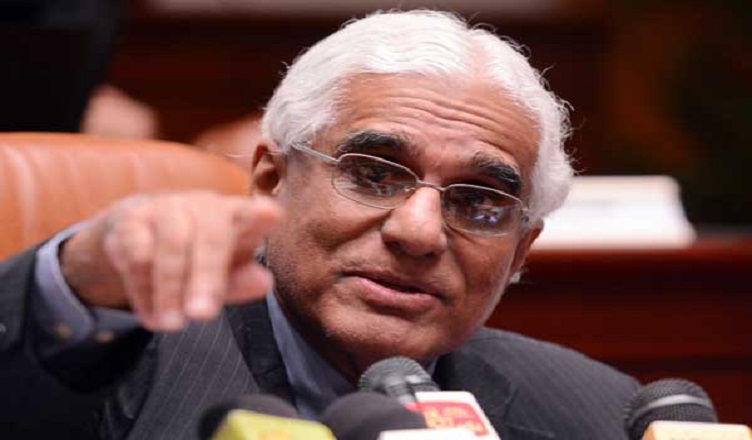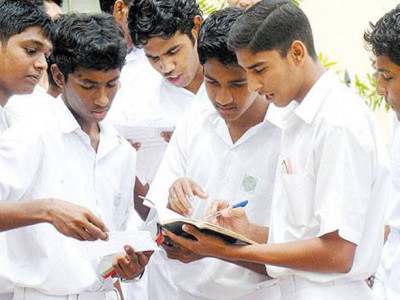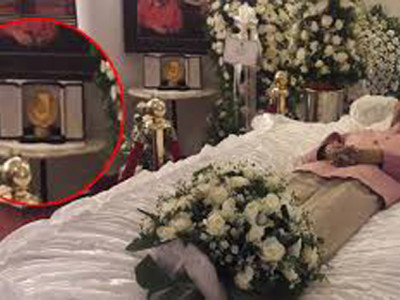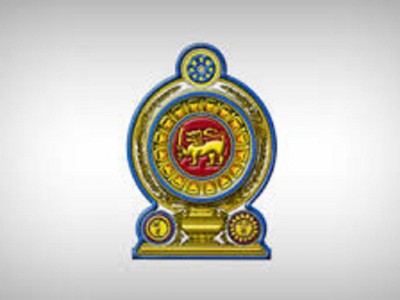(COLOMBO, LANKAPUVATH) –The Central Bank debunked speculation that the country’s economy was collapsing and requested the public not to panic.
“The Central Bank is confident that it can professionally handle the country’s current exchange rate issue and debt situation,” Central Bank Governor Dr. Indrajith Coomaraswamy told at a press conference at the Central Bank (CB) auditorium yesterday.
“We have now come to a better position through aggressive intervention in the market and through various measures to curtail luxury imports.The pressure on the exchange rate will abate,” Dr Coomaraswamy said.“There is enough technical excellence in this organisation to come out of the situation we are now in and we will,” he said.
According to the Central Bank, the exchange rate had depreciated at a faster rate of 9.7 percent so far in 2018. “The Government and the Monetary Board of the CB adjusted the gold and vehicle duties and most recently introduced a raft of measures to cut the non-essential imports,” the Governor said briefing on the interventions made to defend the Rupee.
“These are intended to be temporary measures. As soon as there is stability in the market, these can be taken off,” he commented.
“Let me recall that in 2015 about USD 3.2 billion was spent to defend the Rupee, but the Rupee depreciated by 9.5 percent. In 2011-2012 USD 4.1 billion was spent, but the Rupee depreciated by 15 percent.At that time, there was also a credit ceiling imposed without discriminating luxury goods, essential goods, intermediate goods and capital goods,” the CB Governor said.
“In 2018, so far we have had 9.7 percent depreciation of Rupee, but on net basis we have only sold USD 184 million to the market.We have protected the reserves. The measures orchestrated this time have been very carefully selected, and we have not touched capital goods, essential imports and intermediate goods. This is a far more nuance and sophisticated intervention compaird to that crude credit ceiling which was imposed in 2012,” Dr. Coomaraswamy remarked.
“In 2015 and in 2012, there were fiscal slippages which contributed to the currency depreciation, but this time there had been no slippage. This situation arose basically due to external developments,” he added.
“I hope that the situation would stabilise now.There is tremendous amount of misunderstanding and ignorance about the exchange rates in this country. I have worked in about 20 countries.The attitude to the exchange rate in this country is unique. People think if the currency is depreciated the economy is about to collapse. Our reserves, growth and inflation are ok. From where does this economy collapse then?” he asked.
“Our reserves have come down a little because of debt repayments and some interventions in the currency market, but we are anticipating USD 1 billion within a week from the China Development Bank and we are hoping to raise USD 500 million more from the Panda Bond and Samurai Bond. We are planning to have another International Sovereign Bond issuance before the end of this year. There is plenty of money that is going to come in terms of reserves,” the Governor said explaining that the CB hopes to increase foreign reserves from the current USD 7.3 billion to USD 8.3 billion towards the end of the year.
The CB Governor stressed that having competitive exchange rate is crucial to increase exports, adding that increasing exports is necessary to come out of the debt, which is “a major millstone around the economy”. “Without getting exports up, we are going to be in this mess in terms of debt forever and ever” he noted.
“Now it has actually come to a competitive rate, but I understand that it can have impact on the cost of living. We have to take that into account. Fortunately, this currency depreciation has come at a time when inflation pressures are muted in the economy. Food price inflation is very low. Though currency depreciation may lead to bus and train fare hikes and prices of imported goods going up, its impact is relatively low. The domestic production is competitive and this limits the import prices of imported goods going up,” the CB Chief analyzed.
The CB Governor stressed the need to stop subsidising foreign producers at the expense of our local producers. “Our imports have doubled compared to our exports because of the overvalued exchange rate, which we had for years and years. Having a competitive exchange rate is critical to support our domestic producers. There is nothing wrong in importing goods, but we must be able to earn to pay for the imports,” he added.
He announced that the Central Bank decided to maintain policy interest rates at current levels at 7.25percent and 8.50 percent because of the relatively slow economic growth, tight liquidity conditions in the market, high nominal and real interest rates and keeping the inflation rate within the target.
“Tight monetary policy conditions are observed globally with the continuous strengthening of the US dollar. These have accelerated capital outflows from emerging economies resulting in depreciation of local currencies,” the Central bank announced.
“There had been arguments in favour of increasing interest rates as other countries such as India, Indonesia and Philippines have done that, but we must keep in mind that those countries have very high economic growth and lower nominal and real interest rates where as Sri Lanka’s current economic growth rate was only 3.7 percent in the first half of the year,” the Governor commented.
“Given that Sri Lanka is a twin deficit country, in terms of budget deficit and current account deficit, the chances that Sri Lanka attracting new money at this juncture is very minimal indeed. By increasing interest rates, we will not be able to attract new money or keep the money already invested,” the Governor justified the decision to keep the policy interest rates on hold.
He also said that the country’s economic growth would not exceed 4 percent this year.
Responding to a question by a journalist on the purpose of suspending duty free vehicle permits for MPs for one year in a context where all MPs have already purchased their duty free vehicles, the Governor said the policy had to be imposed in common to public officials, professionals and politicians. “What would have been your reactions, if we excluded politicians from the category? I don’t have the data as to how many MPs have utilised the permit, but we did not want to specifically leave them out,” he replied.
Senior Deputy Governor Dr. Nandalal Weerasinghe said USD 467 million of foreign exchange had gone out from Government Securities this year. He said last year there was an addition of USD 440 million of foreign investment to the Government Securities.




